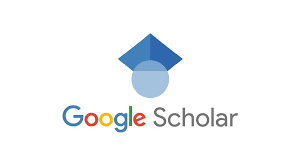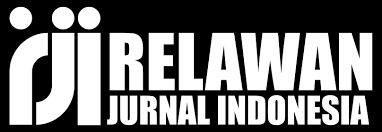Pelatihan dan Pengembangan Sumber Daya Manusia Bidang Pendidikan : Optimasi Kemampuan Guru di Era Teknologi Canggih dan Kecerdasan Buatan (AI)
DOI:
https://doi.org/10.61722/jiem.v3i1.3731Keywords:
Teacher Training, Skill Development, Artificial Intelligence, Educational Technology, Innovative LearningAbstract
The era of artificial intelligence (AI) has had a significant impact on various aspects of life, including the world of education. Amidst these changes, the role of teachers as the main agents in learning becomes very crucial. In order to optimally utilize the potential of AI, teachers need to develop their abilities in mastering technology, especially those related to AI. This journal discusses the importance of training and developing teacher abilities in mastering technology in the AI era, with a focus on efforts that can be made to improve digital skills and teacher adaptation to new technologies. Through a workshop-based training approach, distance learning, and collaboration between educational institutions and technology developers, teachers can be more effective in utilizing AI to create more innovative, personalized, and effective learning experiences for students. Although challenges such as lack of time, limited access to technology, and resistance to change still exist, appropriate solutions can help teachers overcome these obstacles. This study provides recommendations for continuously improving the quality of teacher training, providing supportive infrastructure, and increasing teacher motivation in integrating AI into their learning practices. Thus, training and developing teacher abilities in the era of artificial intelligence are key to creating more advanced and relevant education in the future.
References
Annafi Franz et al., “Pelatihan Penerapan Artificial Intelligence (AI) untuk Menunjang Aktifitas Pembelajaran pada Sekolah Dasar Daarul Hijrah Al_Amin Samarind,” JLP J. Lentera Pengabdi., vol. Volume 01, no. 04, pp. 1–9, 2023.
E. I. Supriyadi and D. B. Asih, “Implementasi Artificial Intelligence (Ai) Di Bidang Administrasi Publik Pada Era Revolusi Industri 4.0,” J. RASI, vol. 2, no. 2, pp. 12–22, 2021, doi: 10.52496/rasi.v2i2.62.
Herman Herman, M. Dimas Bagus Nurmuzayyin, Sholahuddin Irsyad, Khuzanah Khuzanah, and Ida Rindaningsih, “Manajemen Guru Mengajar Bahasa Inggris,” ENGGANG J. Pendidikan, Bahasa, Sastra, Seni, dan Budaya, vol. 4, no. 2, pp. 579–588, 2024, doi: 10.37304/enggang.v4i2.15536.
A. Kukulska-Hulme, “Mobile Learning and the Future of Learning: An HETL interview with Dr. Agnes Kukulska-Hulme. Interviewers: Krassie Petrova and Patrick Blessinger,” Int. HETL Rev., vol. 2, pp. 13–18, 2012, [Online]. Available: https://www.hetl.org/wp-content/uploads/2013/09/HETLReviewVolume2Article2.pdf
T. A. Maulid, “Keterampilan Guru dalam Membuat Media Pembelajaran Digital dengan Menggunakan Artificial Intelligence Aplikasi Canva,” vol. 13, no. 1, pp. 281–294, 2024.
D. Suminar, “PENERAPAN TEKNOLOGI SEBAGAI MEDIA PEMBELAJARAN PADA MATA PELAJARAN SOSIOLOGI,” vol. 2, no. 1, 2019.
S. Kitchenham, “Guidelines for performing Systematic Literature Reviews in Software Engineering,” 2007.
T. Rahayu, S. Syafril, U. Islam, N. Raden, I. Lampung, and I. S. Wekke, “Teknik Menulis Review Literatur Dalam Sebuah Artikel Ilmiah,” no. September, 2019, doi: 10.31227/osf.io/z6m2y.
A. Komarudin et al., “Peranan Articial Intelligence dalam Pendidikan,” APPA J. …, vol. 1, no. 5, pp. 379–385, 2024, [Online]. Available: http://jurnalmahasiswa.com/index.php/appa/article/view/778%0Ahttp://jurnalmahasiswa.com/index.php/appa/article/download/778/506
Y. B. Widodo, S. Sibuea, and M. Narji, “Kecerdasan Buatan dalam Pendidikan : Meningkatkan Pembelajaran Personalisasi,” vol. 10, no. 2, pp. 602–615, 2024.
H. L. Sari, M. Maryaningsih, and A. Asnawati, “Pemanfaatan Kecerdasan Buatan Dalam Pembelajaran Di Sekolah Menengah Kejuruan (Smk) Negeri 2 Bengkulu Utara,” Community Dev. J. J. Pengabdi. Masy., vol. 4, no. 2, pp. 4551–4557, 2023, [Online]. Available: http://journal.universitaspahlawan.ac.id/index.php/cdj/article/view/16027
D. R. Rochmawati, I. Arya, and A. Zakariyya, “Manfaat Kecerdasan Buatan Untuk Pendidikan,” J. Teknol. Komput. dan Inform., vol. 2, no. 1, pp. 124–134, 2023, doi: 10.59820/tekomin.v2i1.163.
I. Rindaningsih and T. Linggowati, “Pengembangan Jaring Tema dan Visualisasi Master Tema di PAUD,” pp. 20–28, 2017, [Online]. Available: http://eprints.umsida.ac.id/426/%0Ahttp://eprints.umsida.ac.id/426/1/3. ARTIKEL Ida Rindaningsih.pdf
I. Rusman and L. Qadrianti, “Peran Kecerdasan Buatan dalam Pembelajaran di Era Digital,” vol. 3, pp. 42–46, 2024, doi: 10.47435/sentikjar.v3i0.3138.
F. Aulia’ul and I. Rindaningsih, “Manajemen Sumber Daya Manusia Di Sekolah,” vol. 02, no. 01, pp. 30–39, 2024.
H. M. Y. Rahim, “Teknologi Informasi dan Komunikasi (TIK), atau dalam bahasa Inggris dikenal dengan istilah,” vol. 6, no. 3, pp. 127–135, 2011.
Y. kuang C. Liao, “Effects of computer-assisted instruction on students’ achievement in Taiwan: A meta-analysis,” Comput. Educ., vol. 48, no. 2, pp. 216–233, 2007, doi: 10.1016/j.compedu.2004.12.005.
I. Taufik and I. Rindaningsih, “Pelatihan dan Pengembangan Guru Sebagai Sumber Daya Manusia Bidang Pendidikan di Era Kecerdasan Buatan (AI),” Manag. Educ. J. …, vol. 10, no. 1, pp. 63–69, 2024, [Online]. Available: https://jurnal.uin-antasari.ac.id/index.php/moe/article/view/12037%0Ahttps://jurnal.uin-antasari.ac.id/index.php/moe/article/download/12037/4029
J. Sukoyo, “Peningkatan Kompetensi Guru Melalui Workshop Penyusunan Soal Digital Bahasa Jawa Dengan Menggunakan Program Adobe Captivate,” Rekayasa, vol. 11, no. 2, pp. 133-138–138, 2013.
N. Alida and M. Jamilus, “Pelatihan Daring Sebagai Upaya Peningkatan Kompetensi Guru di Era Pandemi,” JIRA J. Inov. dan Ris. Akad., vol. 2, no. 7, pp. 1096–1106, 2021, doi: 10.47387/jira.v2i7.156.
A. Rulyansah, R. R. Mardhotillah, R. P. N. Budiarti, M. D. Afandi, and P. L. Aisah, “Pengembangan Profesional Pendidik SD dalam Penggunaan Aplikasi Sekolah Literasi Digital Berbasis Artikulasi Artificial Intelligence,” Indones. Berdaya, vol. 4, no. 1, pp. 109–118, 2022, doi: 10.47679/ib.2023383.
Downloads
Published
Issue
Section
License
Copyright (c) 2024 JURNAL ILMIAH EKONOMI DAN MANAJEMEN

This work is licensed under a Creative Commons Attribution-ShareAlike 4.0 International License.












